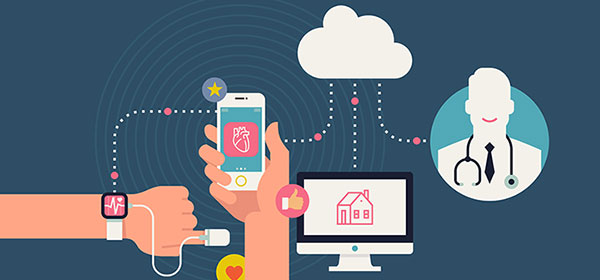Digital health technologies already exist in Australia and it’s time to use them to our advantage, according to a report produced by The George Institute for Global Health and the Consumers Health Forum of Australia.
The policy round-table that resulted in the report was convened to create a strategy to make the best use of digital health tools – such as My Health Record and e-prescriptions – to ensure health information was available to all health practitioners when it was needed and that the information was secure.
Patients are often frustrated by having to tell the same story over and over again to each new medical professional, even when doctors are meant to be talking to one another. A nationwide digital health system would help to ensure that each doctor has the most complete, up-to-date information when treating a patient. It would also allow patients to specify their wishes in case of emergency, and provide directives for end-of-life care.
To test the recommendations made in the report, a series of ‘test-beds’ has been proposed. This a system, often used in the health sector, that allows real-world tests of proposed initiatives. It is expected that six test-bed projects will be under way nationally by 2022, in the areas of telehealth, child health, chronic care, residential aged care, emergency care and end-of-life care.
The policy round-table has recommended that the following areas be the focus of testing.
Chronic care
This project would aim to trial virtual care teams to support patients with high needs. It would also trial a platform called ‘Patients like me’, that would enable patients with chronic and complex needs to safely connect and share their experiences with one another.
Residential aged care
This project would aim to make residents’ health and social services information available in a single location, accessible by both patients and providers anywhere, any time and on any device. It would also aim to publish data that would allow patients, carers and future residents to compare residential care facilities based on health outcomes and patient experiences.
Emergency care
This project would make the ‘My Health Record’ data available rapidly for paramedics and other emergency providers. It would also facilitate better communication between emergency care and other medical teams to ensure better outcomes when patients are in recovery.
End-of-life care
This project would develop informational portals, to give patients and carers information about end of life care options and pathways. It would also create a social media campaign to encourage patients and medical professionals to normalise conversations about death.
What do you think? Does a digital healthcare system seem like the next logical step? Or do the possible security issues make you nervous?
Related articles:
Scientists reverse dementia effects
The problem no one talks about
How to tell a cold from the flu

